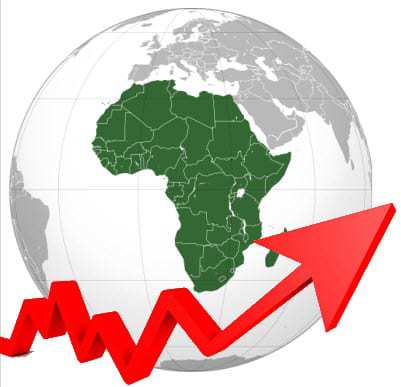Ericsson ConsumerLab report signals promising growth of m-commerce in Africa
Africa is home to a mobile commerce industry that is bursting with potential. As more consumers gain access to mobile devices in countries like Ghana, South Africa, and Tanzania, the demand for m-commerce services is on the rise. These consumers have shown a great deal of interest in shopping and purchasing products through their mobile devices. Ericsson ConsumerLab, a leading provider of communications technology and services, has taken note of the promise of the African m-commerce industry and has been working to address the needs of consumers therein.
Report highlights promise of African m-commerce industries
As the economies of African countries grow more robust, consumers are finding it easier to attain smart phones and tablets. These mobile devices are helping add further momentum to the economies of African countries. A new report from Ericsson ConsumerLab shows that these consumers, especially those in Tanzania, Ghana, and South Africa are beginning to have a significant impact on the economies of their respective countries, thus ensuring that m-commerce has established a strong foothold in the region.
According to M-Commerce In Sub Saharan Africa, African consumers are relying on mobile commerce to purchase airtime, transfer money, pay for electricity, receive salaries, and even check account information. The report shows that many of these consumers come from poor households, but are eager to improve the quality of life for themselves and their families. As such, these consumers are keen to experience new platforms that may help them accomplish this aim, hence the growing interest surrounding m-commerce.
Education and awareness are keys to widespread adoption
Even with consumers so eager to adopt an innovative concept like mobile commerce, education is still key to the success of the burgeoning industry. Ericsson ConsumerLab has found that simple advertising in insufficient in overcoming the barriers that exist in widespread consumer adoption of m-commerce. Lack of familiarity with mobile commerce platforms and mobile security are two issues that must be addressed before mobile commerce can make significant progress within the region.
The Ericsson ConsumerLab report also shows that African consumers are not tied to a single mobile network operator the same way consumers in other countries are. The report shows that African consumer favor technical capacity from their mobile network operators, but these companies do not enjoy any exclusivity with most consumers. This is largely due to the fact that a single operator is unable to meet the needs of the all consumers in Tanzania, Ghana, and South Africa, for example. Thus, consumers in these countries tend to acquire service from multiple operators to ensure they can use their mobile devices no matter where they are.
Emerging trends mark significant progress in mobile commerce
The prevalence of mobile commerce is causing new trends to emerge in Ghana, Tanzania, and South Africa. One of these trends sees African consumers opening bank accounts. Before mobile commerce began to grow in the region, consumers were never encouraged to open bank accounts to manage their own finances. With most m-commerce services now being offered through financial institutions, these consumers are finally being encouraged to open bank accounts, which is creating significant economic activity within these African countries.
Another trend concerns a growing focus on mobile security. Because m-commerce deals in the transmission of financial information electronically, the possibility of hacking and data breach is very real. Ericsson ConsumerLab notes that financial institutions, with the help of mobile operators, have been able to mitigate the risks associated with m-commerce and create a sense of trust and safety with consumers.
Ericsson ConsumerLab has been working to foster the growth of m-commerce in Africa by encouraging positive commerce trends and practices, raising awareness over security and convenience, and making mobile commerce generally more accessible to consumers. The information provided by the company and its report can shed major insight into the burgeoning mobile commerce industry that has taken root in South Africa, Ghana, and Tanzania. More information on mobile commerce from around the world can be found through Ericsson’s blog.
For more information concerning m-commerce news, follow @mcommtoday on Twitter.

